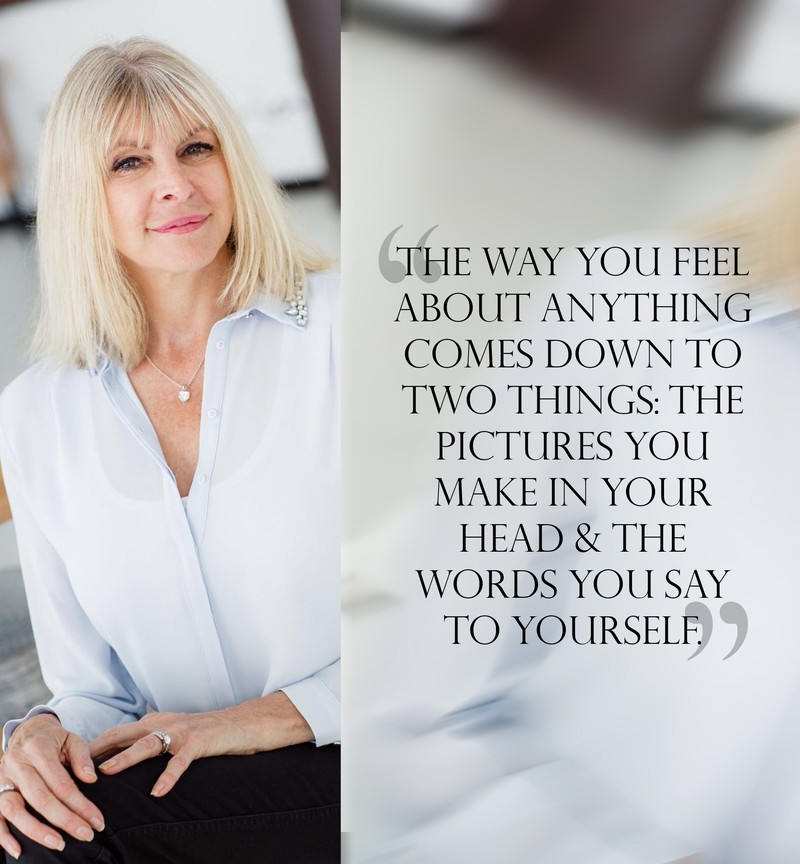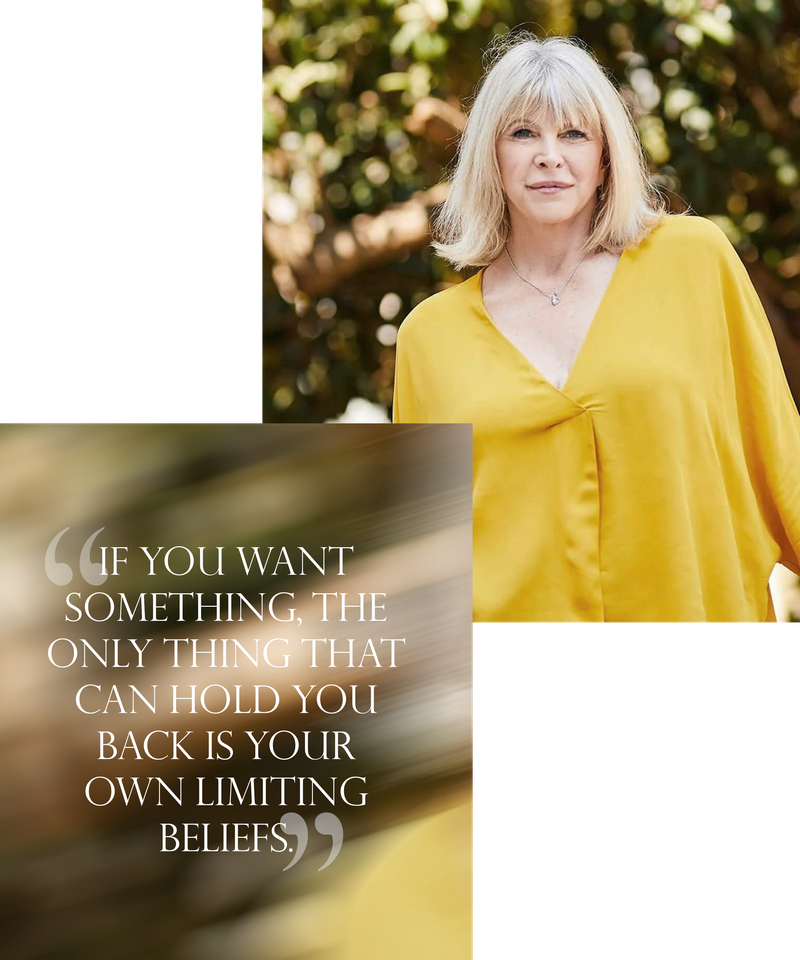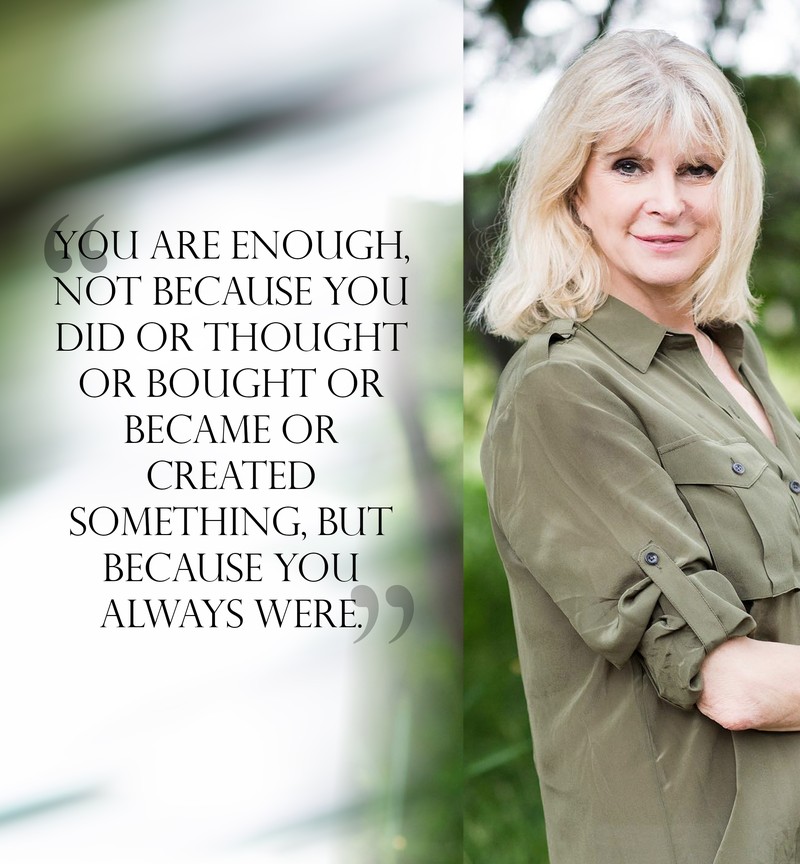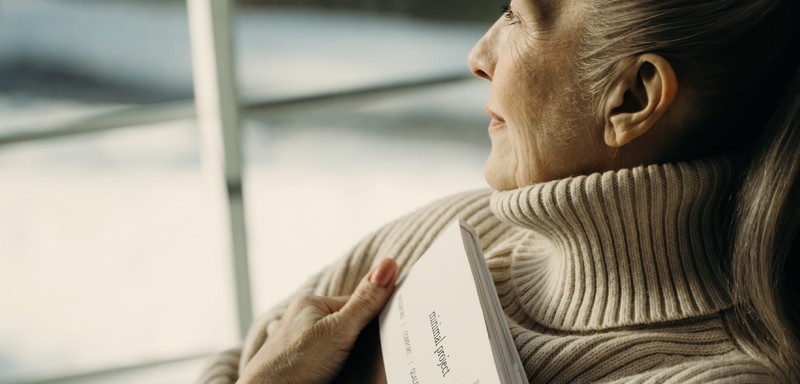
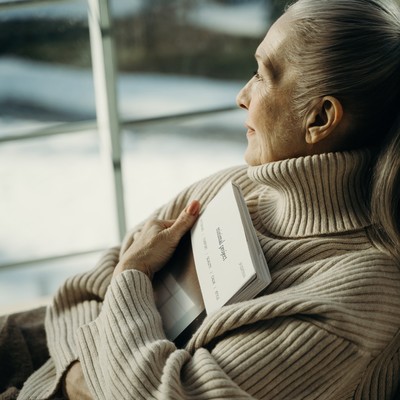
Lessons For Later Life With A Top Therapist
It's useful to think of your life as different ‘acts’. For me, my first act was childhood and my second was being a mother. A third act – which often comes in your 50s and 60s – can be a wonderful time. Your children might have left home, you may have retired, you’ve probably got a bit of money and, now that our lifespans are longer, there are many years left to enjoy. I don’t look at it as a time to sit on the sofa in my slippers but as a new stage and a new beginning.
There’s no need to slow down. If you don’t want to retire, then don’t, but it might also be a time when you want to reinvent yourself. It’s something I’ve done many times myself. Years ago, I was a personal trainer at Jane Fonda’s fitness centre in LA, then I became a parent and now I’m a therapist. It’s important at each stage not to look at the doors that are closing but at the ones opening for you. Ask yourself, what could I do? There’s a range of opportunities out there for older people.
There’s a lot of freedom in the third act. Your children aren’t as dependent, there’s no boss holding you to a maximum of two weeks off and you have more choices than you might realise. It’s time to really embrace doing things your way. For example, I only got married for the first time when I was 52, and my wedding dress designer told me women in this age bracket were her second biggest market. It made me happy to think how many women were celebrating this special time in their lives.
I don’t like the term ‘ageing’. I prefer ‘sage-ing’. In China, no one is considered valuable until they turn 50. They don’t believe you’ve lived properly until you’ve reached this age, which is a very refreshing perspective. And even in western cultures, we have so many role models to look up to – Judi Dench, Helen Mirren, Goldie Hawn, Sheila Hancock – so many women who prove life can be wonderful in your 60s, 70s, 80s and beyond.
The idea that your school days are the best days is nonsense. When I wrote You Can Be Younger, I interviewed hundreds of people, none of whom said they wanted to be 20 again. Their nostalgia or yearning to be younger only ever went back about ten years maximum. All that angst around families and careers falls away as you age, leaving you with room to embrace all the things you never thought you had time for.
Self-limiting beliefs are what hold you back. Many women believe it’s too late by the time they’re in their 50s or older – and most of that comes down to physical appearance. I hear so many people say, “Oh I’m not attractive anymore. It’s over for me.” And yet, if we were in France, you’d never hear French women saying that. Japanese women wouldn’t say it either – they see themselves as incredibly wise, elegant and sophisticated by the time they reach this age. Too many people define themselves by their physical youth but, really, youth is about being psychologically flexible. You can be physically older but young mentally and spiritually.
Thoughts are powerful and your self-worth is largely defined by what your mind is telling you. Ask yourself, what do you believe? Where did those beliefs come from? Then it’s time to let go of some of those negative thoughts. Once you do, it’s a whole new world. There have been so many advancements in society since our mothers’ generation: life-saving medicine, hair dye, great dentists – and they’ve extended quality of life by a long way. There’s no need to resign yourself to feeling old just because of a number.
Ageing is three things – the number on our birth certificate, which is meaningless. Then your biological age. But as long as you’re active, your organs will be younger than your physical age – think of all the yogis who are ageing very differently to the rest of us! Then finally, your psychological age – the age you feel. Think about people who really laugh and embrace life – like Goldie Hawn. Her psychological age isn’t any reflection of what it says on her birth certificate.
Many women are also taught to fear the menopause these days. I’m not denying that for some people it’s a real struggle but thankfully the conversation is opening up to help those women find the right support and medication. But equally, other women do okay with it. The thing to remember is it isn’t the end of your life – you will come out the other side. It’s just a stage of life and one we forget men go through too. Later in life, their testosterone drops, they lose their libido and often feel redundant, so supporting each other through this time is crucial.
Keep your mind young by trying new things. It doesn’t have to be big – I showed my own mother how to do the crossword on her iPad instead of the paper and it worked wonders. Also, start expanding your social circle. Being around young people helps you stay young – I hang out with my daughter’s friends all the time. I never worry that they’re 30 years younger than me. We enjoy each other’s company and have plenty in common. Think about Anna Wintour – she’s 70 but works with all these younger people at Vogue. It’s no wonder she doesn’t look her age.
I’m a firm believer in maintaining an open mind. Don’t fall into the trap of thinking you only like music from the 1960s or black and white films. Listen to and watch the new stuff – see what it’s all about. You don’t have to like it, but just being aware of it will do your mental state good. Don’t over question or over think things – it’s about having fun.
It’s doesn’t do to dwell on the past. It’s very common for people later in life to join things like Friends Reunited to reconnect to their teenage years, school friends, first loves etc. But it’s rare that moving backward is a positive thing. We all move on from different places and relationships for a reason, and often because we outgrow them. So, ask yourself what going back or focusing on the past is really helping you achieve? If it’s because seeing your first love makes you feel 16, there are more proactive ways to feel that way without regressing.
Hindsight only brews regret. We tend to look back on certain events from our life with rose-tinted glasses and fail to remember that, actually, it wasn’t always the best of times. It’s far more important to live your life to the full now, without any regrets. The past can’t be changed, but the future is all to play for. Remember, everyone has regrets – for example, mine is not having more children, but I choose to look to the future and the idea of perhaps being a grandmother one day.
Now is when to make up for lost time. Many people who take up something new later in life – be it yoga, healthy eating, gardening – often say they wish they’d started earlier, but there’s little point in thinking that way. Make the most of it now, while you still have vitality and flexibility to do so.
Of course, some women are forced to confront significant change as they age. It might be the result of divorce or bereavement but, whichever way someone leaves your life, it’s easy to automatically think “I need to learn to be alone.” In reality, though, people will always need people and you shouldn’t feel guilty for wanting to spend time with new friends. If dating sites aren’t for you, think about getting a part-time job or volunteering to see who you meet along the way. A friend of mine who was bereaved started volunteering at a wildlife rescue centre and that’s where she met her new partner. They found they had a shared interest. If you need any further inspiration about learning to live life while still commemorating your relationship, I recommend reading Sheila Hancock’s book about her husband John Thaw.
Adjusting to new circumstances can prompt co-dependency. When my mother’s husband died (he was ten years younger, so it was quite unexpected), she made her whole life about her grandchildren, which I always thought was a bit of a shame. She was a wonderful grandmother, but she was needy, and waited until she was about 85 to get out there again. It’s not easy putting yourself into new social settings but try to see this as an opportunity to pursue things you’re interested in that you haven’t had time for before. There’s something for everyone.
A lot of companies are now interested in hiring older people, too. It’s a bit of a positive from the pandemic – B&Q has said their older employees are more helpful, keener to make a good impression and always turn up on time. Right now, employers are looking for staff who really want to work. It’s easy to think you’re irrelevant in the job market but, depending on what you want out of it, there’s a place for people with the right wisdom and experience.
There’s a big difference between loneliness and being alone. I see no problem with the latter and the former is totally within your control. There’s also no shame in loneliness – we all feel it. At 85, my mother started going out to tea dances and it changed her life. She wasn’t lonely anymore. Similarly, a friend of mine who had an inseparable bond with her mother surprised us all when, after her mother died, she didn’t have the breakdown we feared might be coming. She started being social again, went to a local dance and met a new partner who she’s still with today. She’s very happy, which proves you have to take advantage of what’s out there.
Moving on is just that – keep moving. You might join organisations or clubs that turn out not to be right for you but always give something else a go instead. Don’t give up and resign yourself to a life on the sofa. If physical interaction is a bit much to start with, try online communities first – Mumsnet, Gransnet, anything. You’ve got to do the very thing you don’t want to do – introduce yourself to strangers and build a new social circle. It’s these connections that make all the difference.
Cast your social net far and wide. Often, people who live in smaller communities say they can’t get involved in different things, but that’s not true. Join everything – even if you don’t like it at first – because you don’t know who you’ll meet or where it might take you. It might be a babysitting circle or a dog walking group.
If you think you really are struggling, there is help out there. It might be therapy like the kind we offer at RTT or support from charity groups or even grief counselling. The ultimate goal is to find meaning, self-worth and significance in your life. So many people live their best lives in their 50s and 60s – John Mahoney was only cast in Frasier when he was 50 after quitting a journalism career that bored him. Mary Wesley didn’t write The Chamomile Lawn until she was 82. If you really believe you can do it, that’s all that matters.
Follow @MarisaPeerTherapy & @RapidTransformationalTherapy on Instagram.
DISCLAIMER: We endeavour to always credit the correct original source of every image we use. If you think a credit may be incorrect, please contact us at info@sheerluxe.com.
